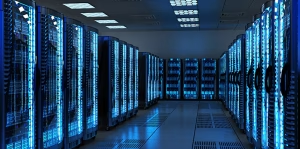That applies to taxes relating to resources and pollution, it also applies to corporate income taxes. Thus, the shift to be made in terms of tax is broad and comprehensive.
This is according to Marga Hoek, author of The Trillion Dollar Shift, who touches below on carbon pricing and rewarding social & positive economic behaviour.
The current tax, law and legislation systems frustrate sustainable business cases and the scaling up of sustainable solutions. Real change towards fair pricing and fair tax will involve a combination of both public regulation and tax shifts on the one hand and commercial pressure on the other hand.
Additionally, it is important to note that not all societal needs are a capsulated business case. Infrastructure, for instance, is a domain where we desperately need public participation, investment, and for business to get involved.
Not all societal needs are a business case
Regarding tax and legislation, it can be said that we are playing a new game, but with the same rules in place from a former game. This simply does not work, nor is it fair for those who play the new game, and it also empowers the ones with the interest to keep the old game going. The most crucial factor holding us back is that we barely put a price on a wide range of resources and pollution. In contrast, we subsidize the use of various finite resources. The value of resource subsidies globally is estimated at over US $1 trillion a year.
Bear in mind that resources and pollution, especially CO2, come with a price both societally and economically. The impact air pollution has on health is huge and creates huge costs. The impact of climate change due to CO2 emissions is also extensive societally, environmentally, and economically. Resources are not free, and we do pay the price for resources getting scarce. Throughout the world, fossil energy, for instance, is still being heavily subsidized. Therefore, it is important and truthfully transparent to monetize externalities if we want to give sustainability a fair chance and achieve the Global Goals. Including externalities in accounting brings an immensely positive impact on both the world and sustainable business. The business case of sustainable solutions will improve because of internalizing costs between 8% to 92%.
Removing subsidies, and pricing current externalities, would accelerate the growth of business solutions to the UN’s Sustainable Development Goals (SDGs) beyond any comparison. Long-term orientated businesses, committed to the SDGs, are urging carbon pricing at global conventions, initiatives and policy negotiations. It is fair to say that it is not a matter of if, but when, carbon pricing will happen and subsidies will cease to exist.
MovinG away from taxing labour, to tax resources and pollution
Aligning with the SDGs means a shift in the tax paradigm. Moving away from taxing labour, and moving towards taxing resources and pollution. When you think about it, it is actually strange to tax labour, which is one of the SDGs (SDG 8: Decent Work and Economic Growth), rather than taxing resources and pollution, which is irreversibly harming the world, societies and the SDGs.
For business, there is an urgent need to “begin with the end in mind,” to quote Stephen Covey. But it holds true and should actually be a mantra to the achievement of the SDGs by 2030. Businesses and investors can see what is coming down the road. They can anticipate a tax shift, provide moral leadership by supporting the lobby for it no matter the country they operate in, actively engage in carbon disclosure projects, and use a price on carbon, pollution and resources in their own strategic thinking, budgeting and prioritizing. It will strengthen the future of the business as well as the world we live in.




















